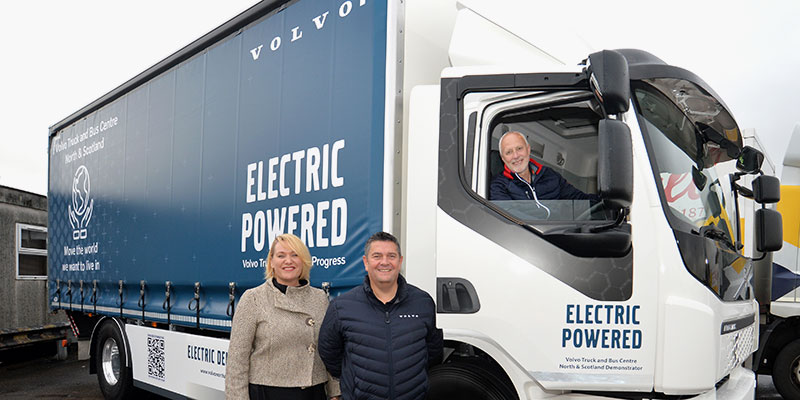The Scottish Wholesale Association (SWA) has produced two case studies to help the wholesale sector understand what is needed to decarbonise transport fleets and achieve net zero.
Wholesalers JW Filshill, United Wholesale (Scotland), Lomond Fine Foods and Dunns Food and Drinks, along with lager producer Tennent’s, trialled and implemented low-carbon and zero-emissions vehicles within their fleets.
During the pilot, three wholesalers trialled a Volvo FE 19-tonne curtain sider with built-in rear-lift. Three wholesalers also shared their experiences of switching their car fleets to electric vehicles.
Ylva Haglund, SWA head of sustainability and engagement, said: “The Volvo trial instilled confidence in managers and employees when considering their future use of electric HGVs and it was encouraging that negative perceptions about EV HGVs quickly turned to a positive reception among drivers, thanks to the higher standard of vehicle.”
Hagland said the trial stressed the importance of designated EV champions for wholesalers in countering negative perceptions and changing attitudes and behaviours.
The trial also found that:
- drivers experiencing range anxiety overcame this, as all the wholesalers were able to charge the vehicle overnight back at the depot, using a mobile charger;
- comprehensive training would be crucial as driving style can affect battery efficiency;
- there is a need for more strategic and efficient route planning to ensure the success of electrification;
- for larger-scale electrification, charge points would have to be installed at depots – requiring significant investment.
The second case study – looking at car fleet decarbonisation – revealed that there were huge carbon and cost business benefits and also benefits for employees, including a monthly tax saving of around £250 in Lomond’s case. However, the trial also flagged up the problem that those who live in flats face charging at home.
Again, range anxiety was raised; Dunns said businesses should be “realistic about the range of vehicles”.
Haglund concluded: “The featured wholesalers have committed to achieving net-zero emissions before, or in line with sector and national commitments, and intend to move forward with fleet decarbonisation. The companies are also investigating other alternative fuels such as hydrogen, predominantly for the larger vehicles in the fleet.”
Overall, she said, both trials have shown that change is possible, but more and faster action towards resolving remaining barriers, involving all stakeholders, is now needed in order to accelerate the decarbonisation of vehicle fleets and help organisations reach internal and national targets.




